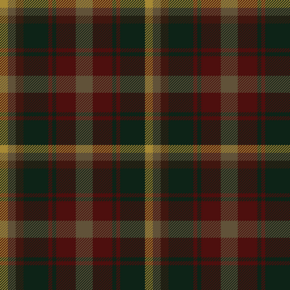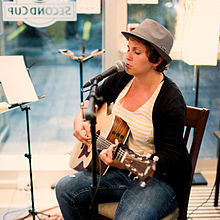Portal:Canada
| Showcase | Contents | Contributing |
Introduction
Canada is a country in North America. Its ten provinces and three territories extend from the Atlantic Ocean to the Pacific Ocean and northward into the Arctic Ocean, making it the world's second-largest country by total area, with the world's longest coastline. Its border with the United States is the world's longest international land border. The country is characterized by a wide range of both meteorologic and geological regions. It is a sparsely inhabited country of just over 41 million people, the vast majority residing south of the 55th parallel in urban areas. Canada's capital is Ottawa and its three largest metropolitan areas are Toronto, Montreal, and Vancouver.
Canada is a parliamentary democracy and a constitutional monarchy in the Westminster tradition. The country's head of government is the prime minister, who holds office by virtue of their ability to command the confidence of the elected House of Commons and is appointed by the governor general, representing the monarch of Canada, the ceremonial head of state. The country is a Commonwealth realm and is officially bilingual (English and French) in the federal jurisdiction. It is very highly ranked in international measurements of government transparency, quality of life, economic competitiveness, innovation, education and gender equality. It is one of the world's most ethnically diverse and multicultural nations, the product of large-scale immigration. Canada's long and complex relationship with the United States has had a significant impact on its history, economy, and culture.
A developed country, Canada has a high nominal per capita income globally and its advanced economy ranks among the largest in the world, relying chiefly upon its abundant natural resources and well-developed international trade networks. Recognized as a middle power, Canada's strong support for multilateralism and internationalism has been closely related to its foreign relations policies of peacekeeping and aid for developing countries. Canada is part of multiple international organizations and forums. (Full article...)
Featured article -
Canadians (French: Canadiens) are people identified with the country of Canada. This connection may be residential, legal, historical or cultural. For most Canadians, many (or all) of these connections exist and are collectively the source of their being Canadian. (Full article...)
Featured biography -
Kellie Loder (born 1988) is an independent singer-songwriter from Newfoundland who plays drums, guitar and piano. They have released three albums: The Way in 2009, Imperfections & Directions in 2010 and Benefit of the Doubt in 2018. With a voice that St. John's-based newspaper The Telegram has described as "powerful yet serene and soulful", they received critical recognition from Canada, including a nomination at the Juno Awards. (Full article...)
Selected panorama -
National symbol -

Regional tartans of Canada are represented by all Canada's provinces and territories having a regional tartan, as do many other regional divisions in Canada. Tartans were first brought to Canada by Scottish settlers; the first province to adopt one officially was Nova Scotia in 1956 (when registered at the Court of the Lord Lyon; adopted by law in 1963), and the most recent province was Ontario, in 2000. Except for the tartan of Quebec, all of the provincial and territorial tartans are officially recognized and registered in the books of the Court of the Lord Lyon, King of Arms of Scotland. (Full article...)
Selected vital article -
The politics of Canada functions within a framework of parliamentary democracy and a federal system of parliamentary government with strong democratic traditions. Canada is a constitutional monarchy where the monarch is head of state. In practice, executive authority is entrusted to the Cabinet, a committee of ministers of the Crown chaired by the Prime Minister of Canada that act as the executive committee of the King's Privy Council for Canada and are responsible to the democratically elected House of Commons. (Full article...)
Selected picture -
Current events
- September 25, 2024 –
- Canadian Prime Minister Justin Trudeau survives a no-confidence vote by a vote of 211–119. (BBC News)
- September 24, 2024 –
- Scientists from the University of Waterloo announce that they have positively identified bones found on King William Island in Nunavut, Canada, as those of James Fitzjames, captain of HMS Erebus during Franklin's lost expedition. (CBC News)
- September 20, 2024 –
- Three people are injured in a stabbing attack at a mosque in Châteauguay, Montreal, Quebec, Canada. The perpetrator is arrested and charged. (CTV News)
- September 9, 2024 –
- Finnish-Canadian sportswear mogul Peter Nygård is sentenced to 11 years in prison for sexual assault. (CBC News)
- September 4, 2024 –
- In Canada, New Democratic Party leader Jagmeet Singh announces that he has terminated the confidence and supply agreement his party made with Prime Minister Justin Trudeau's Liberal government in 2022. (CBC News)
- August 27, 2024 – Canada–Mexico relations, Mexico–United States relations
- Mexico suspends all interactions with the Canadian and American embassies in Mexico City due to claimed interference with its independence and internal affairs after both ambassadors criticized reform plans for members of the judiciary, up to and including Supreme Court justices, to be elected by popular vote. (Reuters)
Did you know -

- ... that the Falcon Lake Incident is considered "Canada's best-documented UFO case"?
- ... that Eagle-Dogtooth Provincial Park in Ontario, Canada, contains part of the Experimental Lakes Area, a controlled area for conducting scientific experiments in lakes?
- ... that John Hutchison, in his role as Mayor of Toronto, signed the city's bid to become the capital of the Province of Canada?
- ... that Dan Finnerty was cast in Single All the Way so that he could cross the Canada–U.S. border and join his wife, Kathy Najimy, on the set of the film?
- ... that the Saskatchewan Conservation House, built in 1977 to withstand Canadian winter temperatures, did not use a furnace?
- ... that Jonathan Beaulieu-Richard retired from the Canadian Football League to become a pharmacist?
- ... that Irene Parlby was one of The Famous Five, a group of women in Canada who fought for the right of women to be considered "persons"?
Featured list -
The Parliament of Canada is the legislative body of the government of Canada. The Parliament is composed of the House of Commons (lower house), the Senate (upper house), and the sovereign, represented by the governor general. Most major legislation originates from the House, as it is the only body that is directly elected. A new parliament begins after an election of the House of Commons and can sit for up to five years. The number of seats in parliament has varied as new provinces joined the country and as population distribution between the provinces changed; there are currently 338 House MPs and 105 Senators (when there are no vacancies). (Full article...)
Main articles
Associated Wikimedia
The following Wikimedia Foundation sister projects provide more on this subject:
-
Commons
Free media repository -
Wikibooks
Free textbooks and manuals -
Wikidata
Free knowledge base -
Wikinews
Free-content news -
Wikiquote
Collection of quotations -
Wikisource
Free-content library -
Wikiversity
Free learning tools -
Wikivoyage
Free travel guide -
Wiktionary
Dictionary and thesaurus































